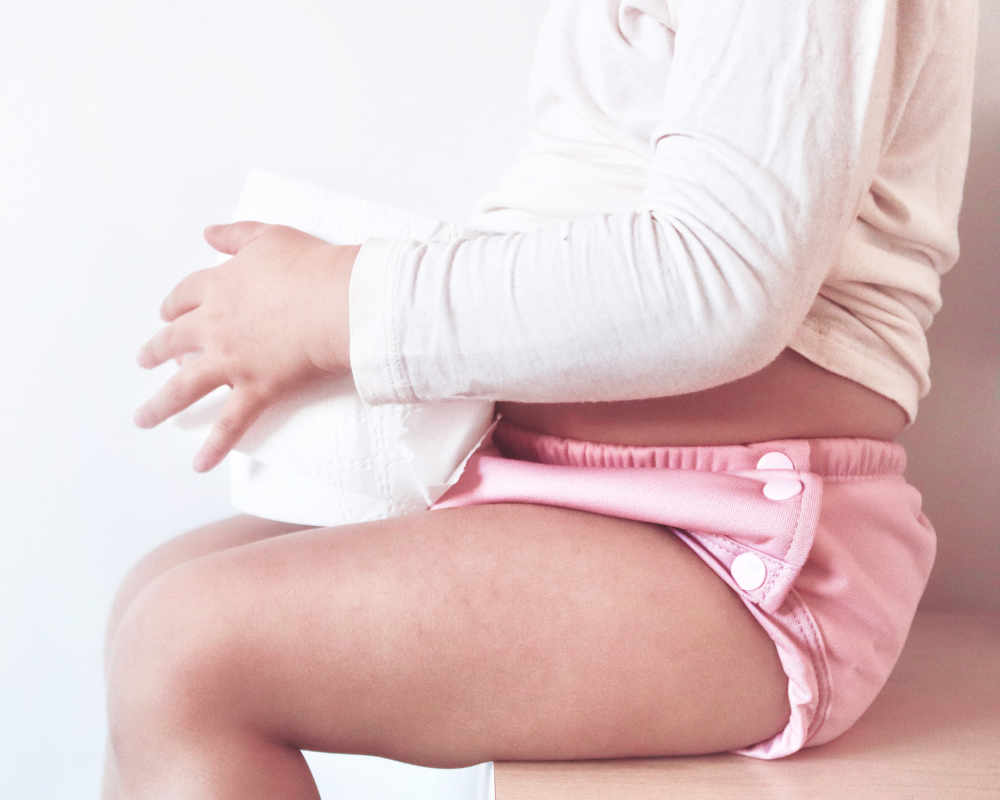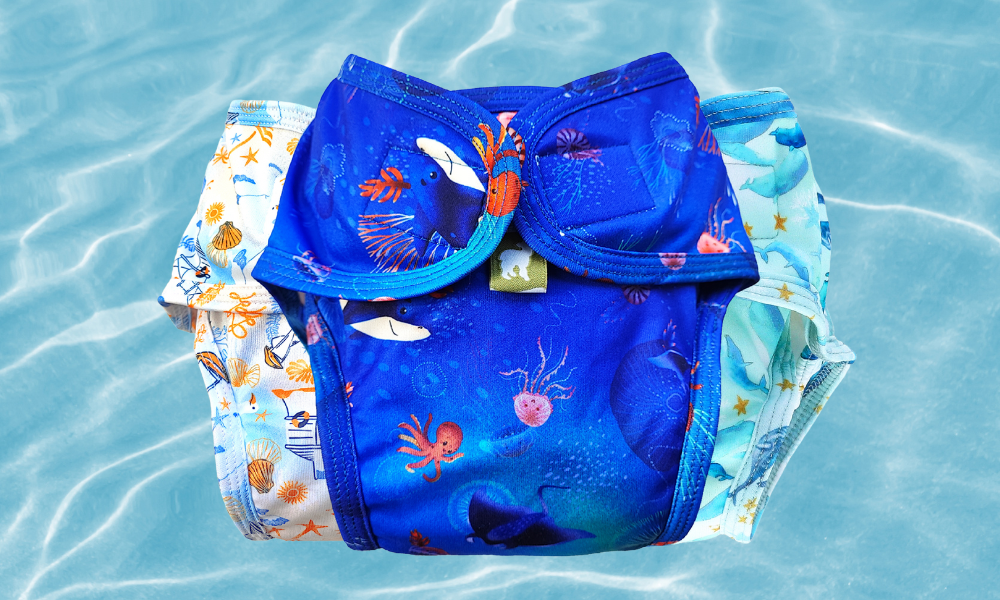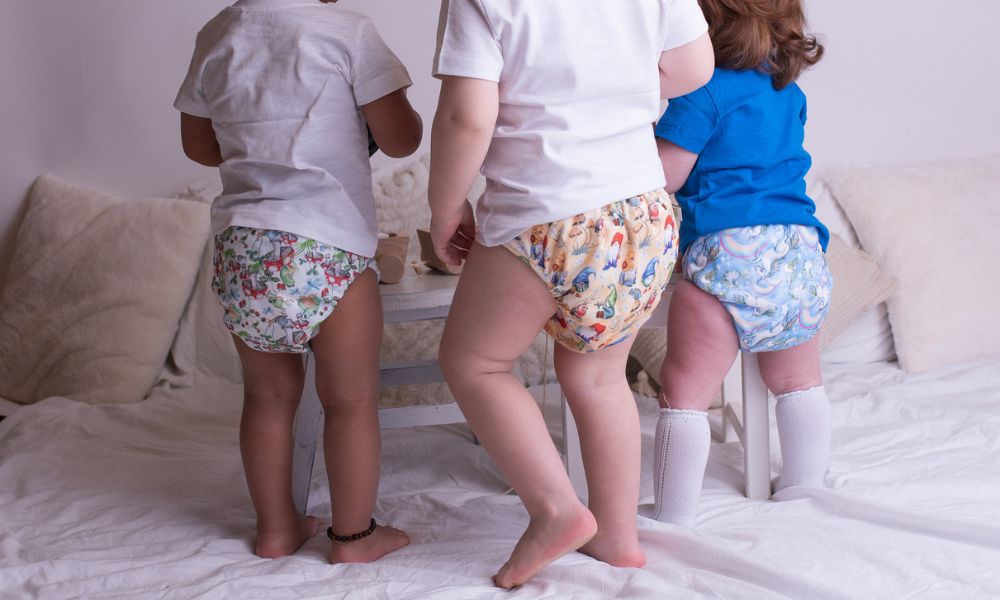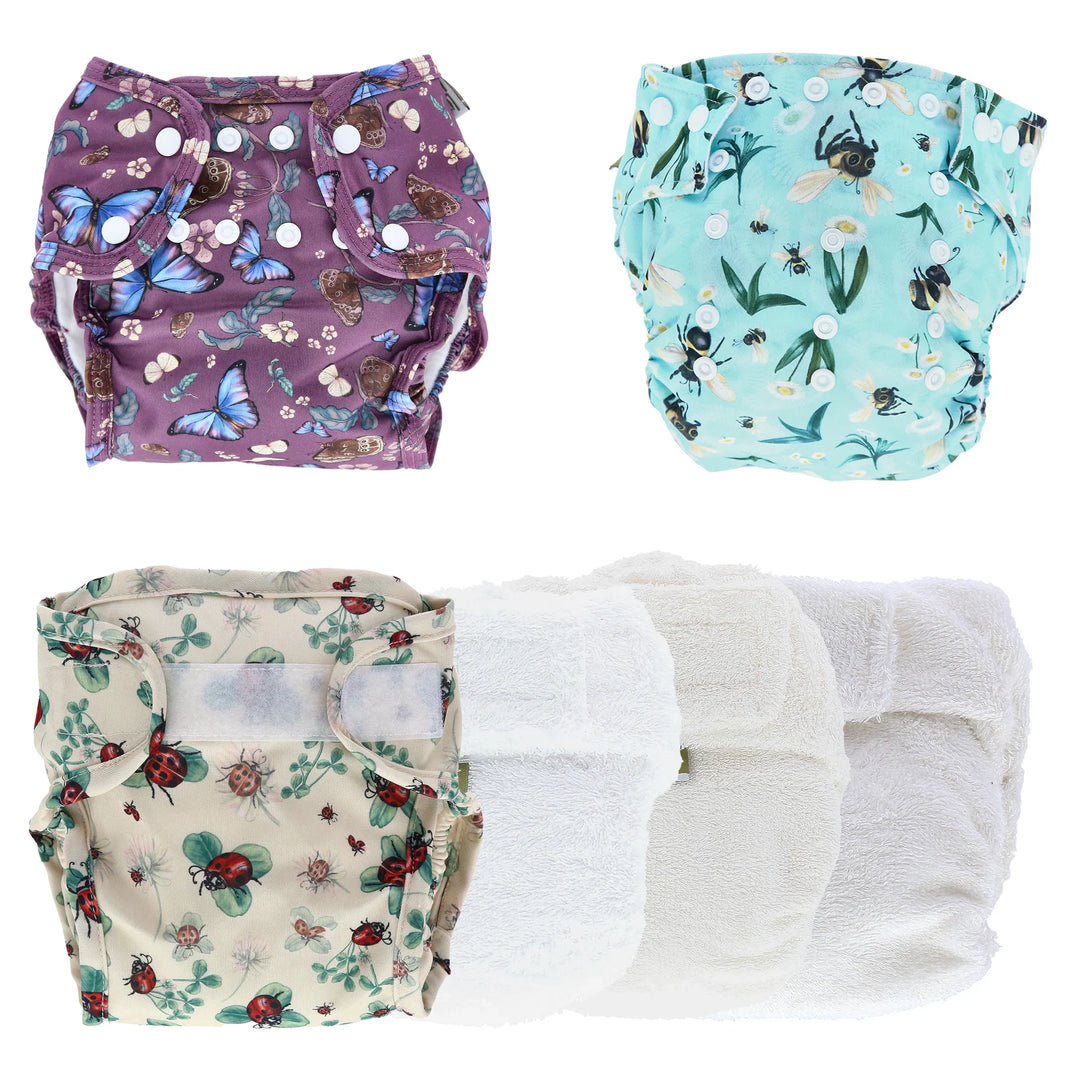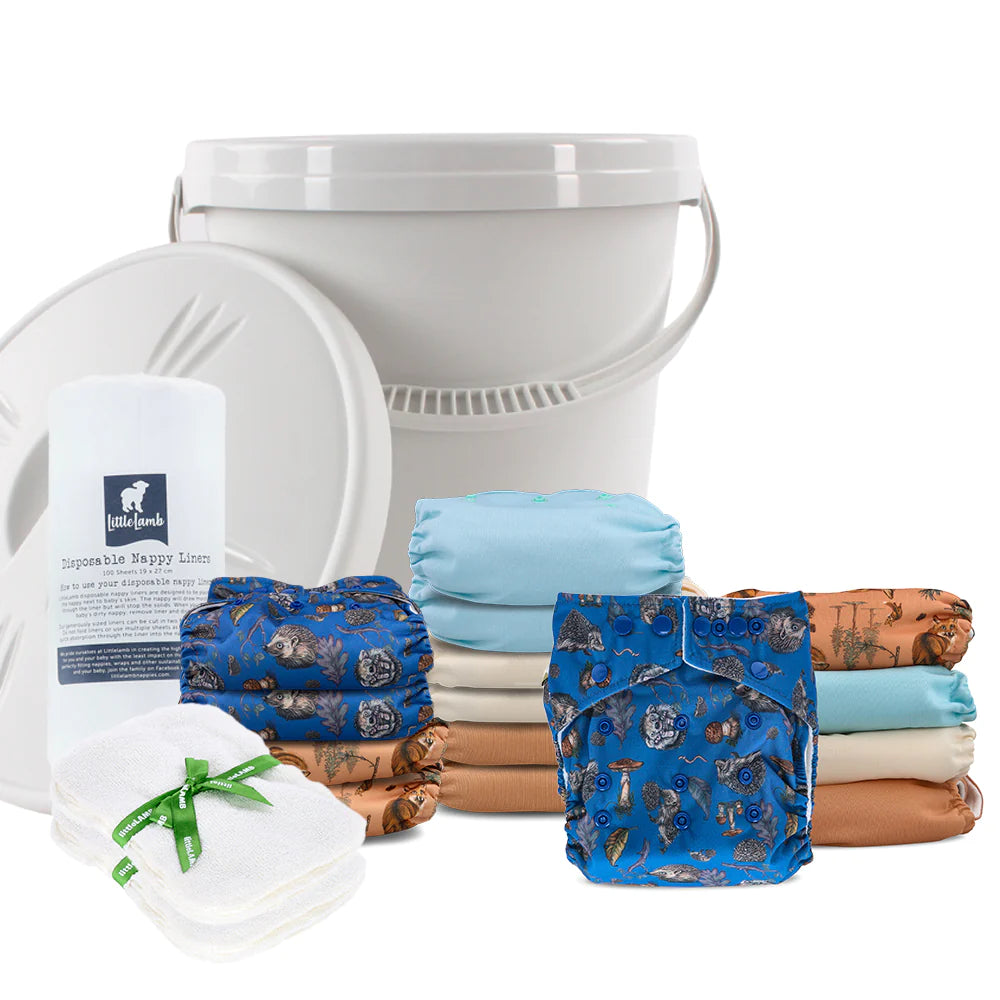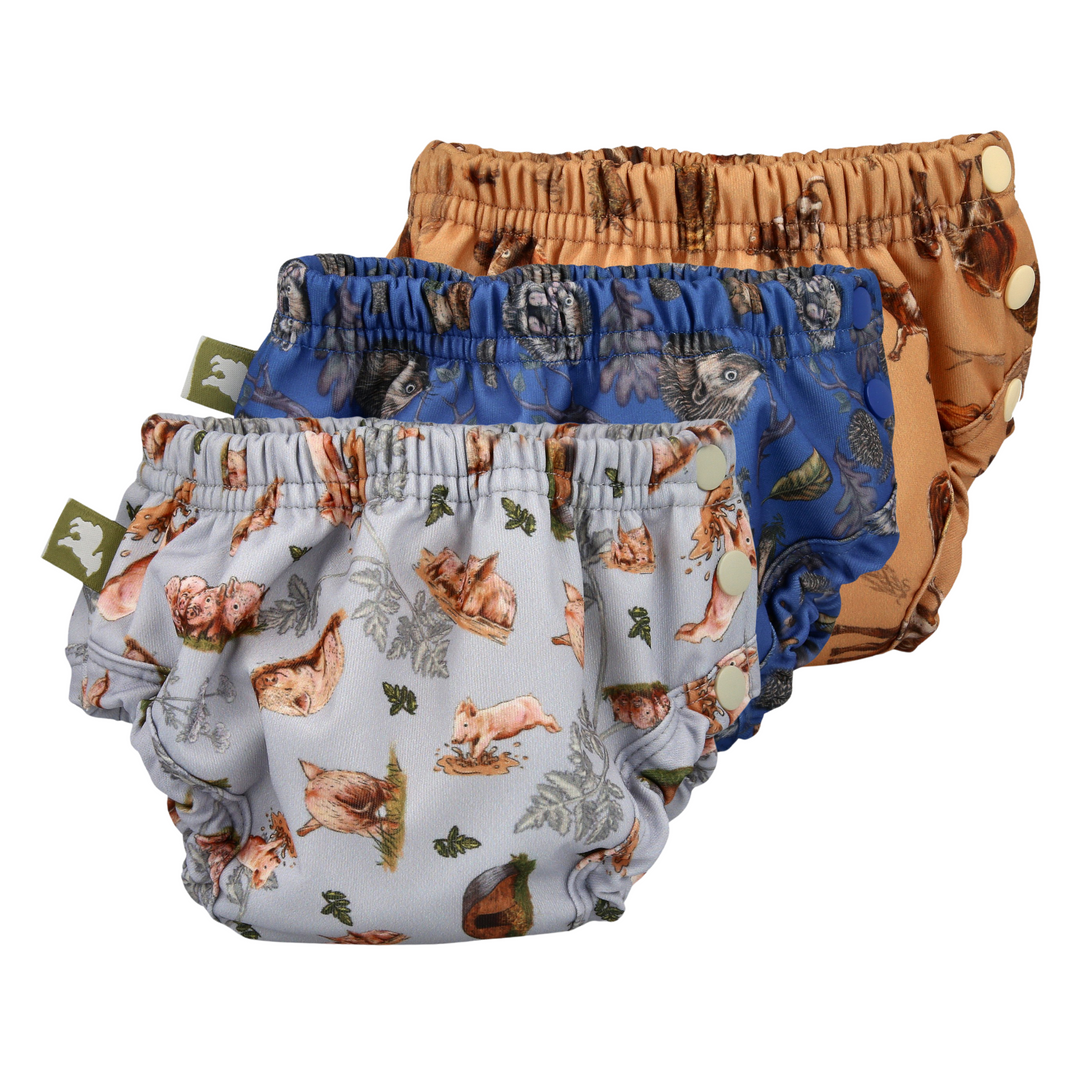
One of the most important items to pack when giving birth is the right amount of nappies for your newborn. This guide explains everything that you need to know.
Are you preparing to give birth? If so, then it’s important to think about what you need to take with you to the hospital. There are quite a few things that you should pack to make sure that you are fully prepared for your time in hospital with your newborn. One of the most important items that must be in your bag is nappies. Newborns go through far more nappies than you might realise as the milk or formula will go straight through them in the beginning. In this article, we’ll discuss how many nappies you need as well as some of the other considerations that you should think about when you are planning your big day.
Do I Need To Bring Nappies To The Hospital?
Many hospitals will provide you with a pack of nappies. However, these are more than likely to be disposable. If you are keen to start using reusable nappies immediately, then you should take your own. It’s also worth noting that while it’s common for hospitals to provide a pack of nappies, there is no guarantee. You may also find that your newborn needs more than the number provided.
How Many Nappies Should You Take To The Hospital?

You should aim to take approximately twenty to thirty nappies with you to the hospital. You can purchase nappies that are specifically designed for newborns. These are soft, highly absorbent, and provide a snug fit. This will make it far easier for you as a new parent.
The reason why you need to pack so many nappies is that a newborn will use approximately 15 nappies each day. As such, it’s important to make sure that you have enough nappies to last you for the couple of days that you might be in the hospital after you give birth as well as a few for when you get home. When you get home you will feel tired and quite drained. You don’t want to immediately start washing. It’s great if you can have these on hand for the first day that you are home.
By the time your baby is 6 weeks old, they will settle into a routine that requires far fewer changes. On average, this will be approximately 5 to 6 changes per day and it will gradually decline as they get older. Two to three days of reusable nappies will also cover the washing and drying time.
If you are using reusable nappies, you can either choose between 20 and 30 individual nappies or a two-part system of approximately 10 outer waterproof wraps and about 30 absorbent inners.
If you think you are only going to be in hospital for one night or one day, you can consider packing half of these nappies so that you don’t have as much to carry. You can then ask someone close to you to bring in the other half if you need to stay longer. This will also allow them to take the first set of dirty nappies home with them so that they can be washed, ready for when you get home.
Can You Use Reusable Nappies In The Hospital?
You might assume that you will be confined to using disposable nappies in the hospital. However, this is not the case. Today, most midwives and hospitals have plenty of experience with cloth nappies and some will be happy to see them being used. There’s no need to ask permission - it’s ultimately your choice. If you need to go to the hospital with your little one after giving birth, then packing 12 newborn nappies will be enough for an overnight stay. However, it’s always best to prepare for complications which is why it’s recommended that you do pack a few more.
If you are planning to use reusable nappies with your newborn, you will require a wet bag to put the wet nappies in. You can also consider using a nappy bucket. A nappy bucket will keep your dirty nappies contained until the next wash. This helps keep the smells in and stops things from becoming messy. Many of the best nappy buckets available to purchase are also lockable.
Another key option that you will need is wipes. Wipes are essential for cleaning your baby during each nappy change. Leaving behind residue will cause issues such as rashes that you need to avoid. This will make things uncomfortable and unpleasant for your newborn. Similar to reusable nappies, you can also get reusable wipes. These provide the same benefits as reusable nappies. You can simply wipe, wash and re-use. These baby wipes are free from chemicals, synthetic fragrances, and alcohol that are often found in the typical throwaway baby wipes available to purchase. You need the same amount of reusable wipes as the number of nappies that you will be using with your newborn.
When Should You Start Packing Your Hospital Bag?
It’s worth making sure that your hospital bag is packed and ready to go before the end of the third trimester. Aim to have it packed with everything that you need by approximately week 36. This is roughly 4 weeks before your due date however it’s not uncommon for babies to arrive earlier than expected. That’s why it’s worth being prepared and it will also mean that you have one less thing to worry about.
What Should You Use For Your Hospital Bag?
When choosing a hospital bag, it’s best to use one that is about the size of a large gym bag. If you are expecting twins then this will obviously need to be larger. Make sure that it is sturdy with multiple compartments. This will help you easily find anything that you need.
What Should Be In Your Hospital Bag?
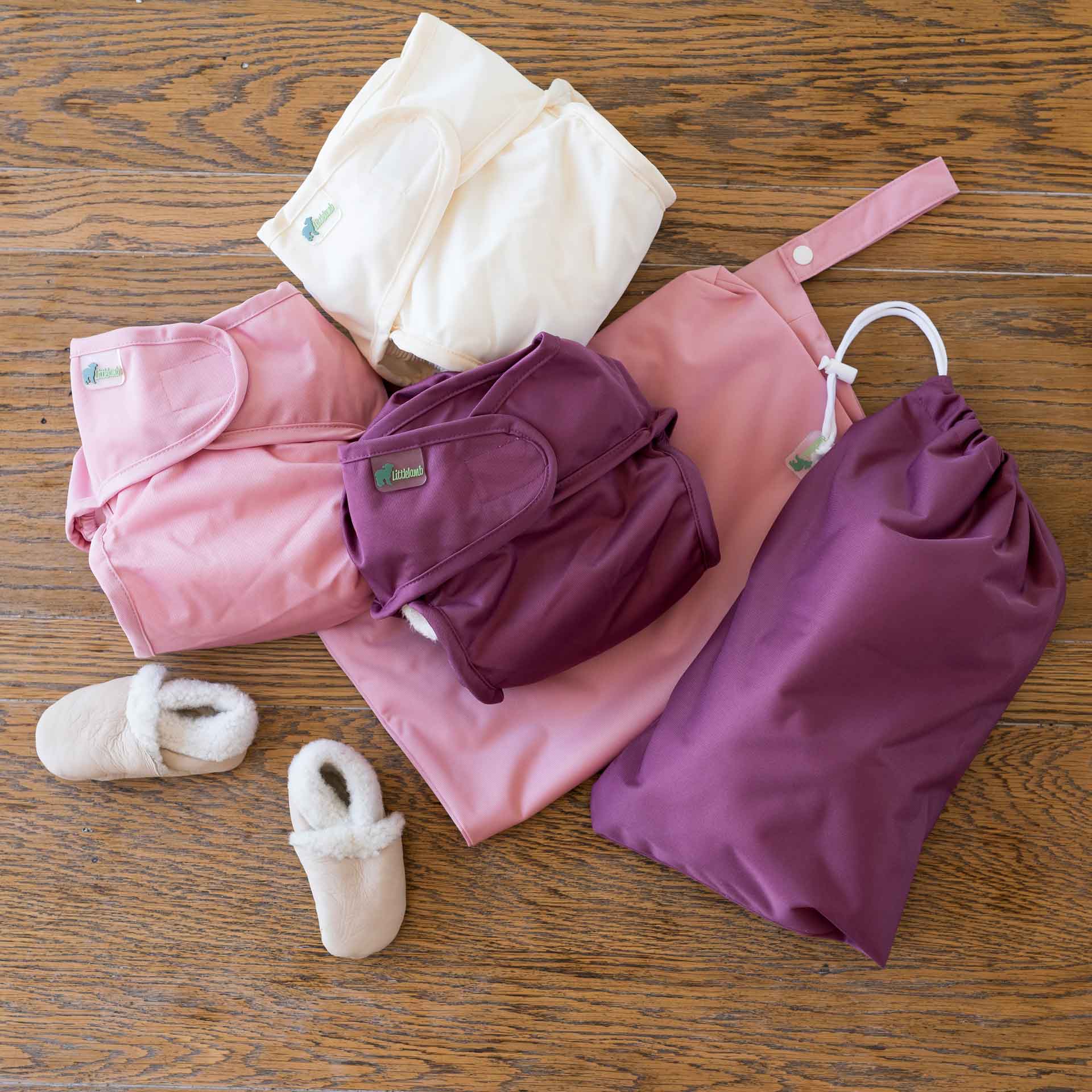
There are plenty of things that should be included in your hospital bag. These can be separated into things you need and things that your baby needs. If you like, you can have two bags - one filled with things for you and one packed with baby supplies.
Things In Your Hospital Bag For Your Baby:
- • Babygrows and sleepsuits - hospitals can differ on what is and isn’t acceptable when dressing your baby. As such, you may want to consult with the hospital about this beforehand. They should be able to advise you on the layers that you should pack.
- • Nappies - Remember, you will need no less than 25 nappies to cover your stay in the hospital
- • Wipes - These can be reusable
- • Muslin squares - These can be placed over your shoulder to prevent dribbles and stop your clothes from getting dirty
- • Blanket - When they are first born a baby can’t regulate their own body temperature. As such, blankets are essential. A hospital will always provide you with blankets, but it’s a good idea to have your own.
- • Socks - Similar to blankets, socks are key for keeping your little one at the right temperature. Your newborn will also likely be provided with a hat after you give birth to keep their head warm. However, you can also consider bringing your own one of these as well.
- • Home outfit - You should pack an outfit to dress your baby in for the journey home. When choosing an outfit, make sure to think about the weather conditions. If your baby is born in the middle of winter, then they are going to need a few extra layers to keep them warm and cosy.
- • Bottles - If you are bottle-feeding your baby, then you need approximately 6 bottles. You may want to pack pre-packed bottles that are complete with ready-made formula.
Things you need:
- • Underwear
- • Heavy-duty maternity pads
- • Nightwear
- • Toiletries
- • Phone and charger
- • Change of clothes
- • Drinks and snacks
What Should Be On Your Labour List?
You should also complete a labour list or birth plan so you are ready for the day. This should include written key information including your doctor's name, contact details, and where you plan to give birth.
You may also want to include more information including your labour preferences, pain medication options, and delivery preferences. These are all personal choices so do make sure that you think about them carefully. A labour list will also include baby care choices such as bottle-feeding or breastfeeding and whether you plan to use a pacifier.
A birthing plan will ensure that your doctors and everyone who is responsible for your care will be aware of how you want to give birth and how you plan to care for your baby.
We hope this helps you understand some of the key considerations that you should think about when you are planning how many nappies you need to take to the hospital for your newborn. If you do forget to pack something in your hospital bag, there’s no reason to panic. You’ll find that your hospital is accomodating and will usually be able to provide whatever you have missed. The only issue is that they might not be the specific product that you want to use for your baby. That’s why it’s best to be as prepared as possible.





